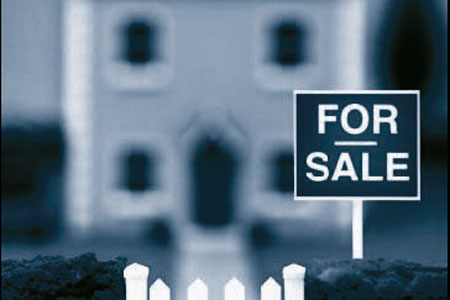
Islamic Home Finance: A Two Way Street in the UK
Issue 1 Sept / Oct 2003
Islamic finance opens up a range of options for the Muslim consumer. Gohar Bilal explores the increasing availability of halal mortgages and guides us through the financial maze.
It is likely to be the single largest investment you’ll ever make, and for many people it is the ultimate dream - to own your own home and get your foot on the property ladder. In 1603 Sir Edward Cooke famously declared that, “An Englishman’s home is his castle.” The way property prices are these days, he would probably expect to buy a dozen castles for the price of a 2 bedroom loft conversion in Harrogate.
For many of the 1.8 million UK Muslims in the property market, mortgages pose a dilemma because usury is forbidden in Islam. This unease with mortgages has lead to the growing buzz of ‘Islamic Finance’ catching the attention of the Bank of England and other regulators who are keen to service the UKs largest religious minority.
Islamic financial products are set to create interesting rippling effects in the UK’s economy, weaving a system that will provide flexibility of conventional and nonusurous banking which will not only yield benefits at community level but will also filter into the UK financial markets, reinforcing the UK economic environment.
The two types of Islamic home finance are: Ijara/Leasing and Morabaha
Let us explore each issue in more detail.
Leasing
Ijara is based on the concept of leasing where the bank initially purchases and owns the property before renting it to the prospective buyer. The buyer continues to gain ownership of the property while paying rent on the portion owned by the bank. Upon gaining 100% ownership the property is transferred from the bank to the owners.
In the 2003 budget, double stamp duty for alternative finance modes such as Islamic finance was abolished - an encouraging step by the UK government. This has attracted the attention of institutions like Barclays, HSBC and Yorkshire Building Society to launch Islamic Home finance. Others are also researching this product as illustrated by the recent conference on Islamic Home Finance organized by the Council for Mortgage Lenders, which was attended by participants representing major institutions in the UK.
Cost of funding risk
Morabaha means the bank will buy the property at, for example £100,000, and simultaneously sell itto the buyer at say £150,000 thereby making a profit of £50,000. This structure may potentially create a loss situation for the bank as it often uses money from its owndepositors. If depositors decide to withdraw their money before the Muslim home buyer has paid, the bank will have to seek alternative ways to finance the scheme (e.g. borrowing money from another depositor). This can expose the bank to a loss if the return on the new deposits, or cost of borrowing funds is more than the profit agreed from the home owner.
Another implication with the Morabaha is that the home owner agrees to purchase the property for a fixed price which is based on the final maturity (say 20 years)of payment. This fixed price does not change even in the case of early repayment.
The impact of such products will not only help financial markets but will also benefit the commercial, economic and social environment in the UK. Islamic home finance may well be the triggering factor for developing profit-based savings products.
While financial benefits will obviously drive financial institutions, those that will offer competitive products will clearly benefit. More interesting is the fact that the institutions will have to offer Islamic home financing schemes that will give Muslim or other consumers the opportunity to choose between their in-house Islamic mortgages or conventional mortgages.
words: Gohar Billal
Bookmark this |
|
Add to DIGG |
|
Add to del.icio.us |
|
Stumble this |
|
Share on Facebook |
|
Share this |
|
Send to a Friend |
|
Link to this |
|
Printer Friendly |
|
Print in plain text |
|


Comments
0 Comments